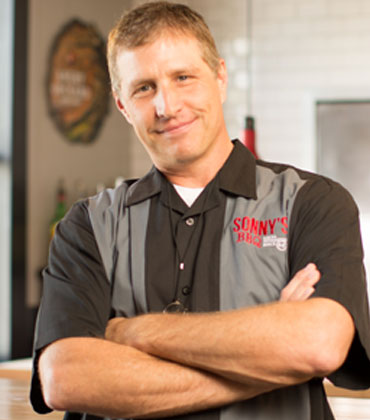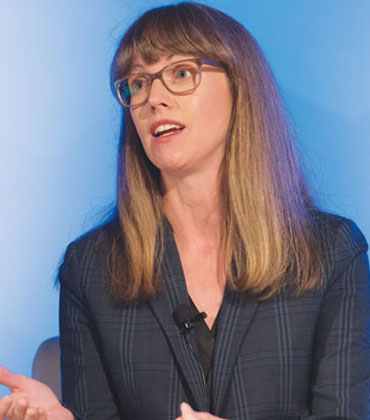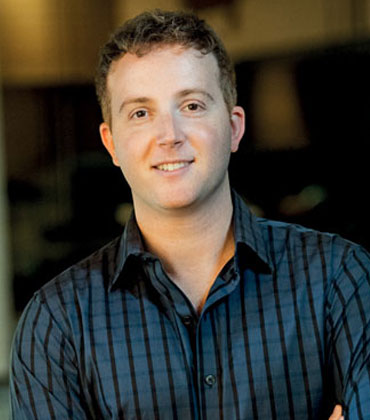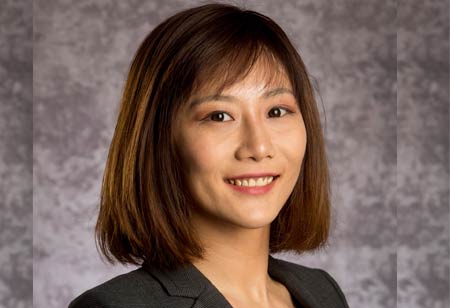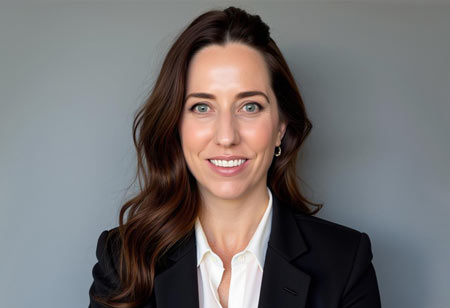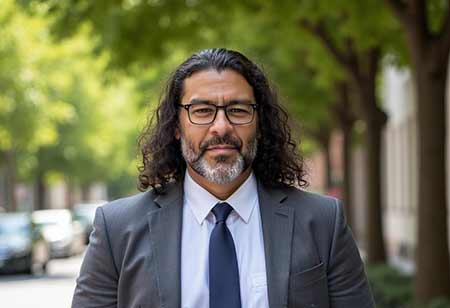THANK YOU FOR SUBSCRIBING
By Dave Seebeck, VP & CIO, Consolidated Restaurants
Back to the Future: The Intersection of Technology and...
By Peter Venti, Director of Operations, RealFood Consulting
Restaurant Analyst: The Critical Job That Doesn't Exist

Building Resilience and Foresight in Food Diagnostics
Jerome Combrisson, Laboratory Sciences & Expertise Director, Mars

 Jerome Combrisson, Laboratory Sciences & Expertise Director, Mars
Jerome Combrisson, Laboratory Sciences & Expertise Director, MarsJerome Combrisson, Ph.D., is a biotechnology leader passionate about transforming scientific breakthroughs into real-world solutions. With expertise in food microbiology, diagnostics, and microbiome insights, he bridges molecular technologies with innovative applications that advance food safety, safeguard health, and drive impactful innovation globally.
In an exclusive interview with Food and Beverage Tech Review, Jerome Combrisson shared his approach to food safety and diagnostics.
Key Steps on the Journey to Mars
My career has been driven by curiosity and the desire to make science practical, not just academic. I began in molecular and microbial ecology during my PhD, which gave me a foundation in rigor and methodology while sparking an interest in solving real-world problems.
In industry, first with Kronenbourg and later Danone, I focused on translating scientific advances into reliable methods that could scale across global food businesses. I saw how well-applied science directly improves food quality and consumer safety.
At bioMérieux and Mérieux NutriSciences, I expanded into diagnostics and next-generation sequencing, learning that building capabilities requires not only technology but also strong leadership, collaboration, and empowerment of diverse teams.
At Mars, these experiences come together. I now apply microbiology and molecular sciences while leading global teams to protect food safety. My philosophy: leadership means creating lasting capabilities, setting uncompromising standards, and fostering cultures where innovation thrives.
Strategies That Set Mars Apart
One of Mars’ greatest strengths is treating Applied Analytical Sciences not as a support function, but as a strategic capability. This mindset has shaped the deliberate choices we’ve made in a fast-changing environment.
First, we invested in building global capabilities rather than isolated tools. That meant developing standardized and validated methods that are applied consistently across our labs worldwide. Strong governance ensures that results are reproducible and trusted everywhere. This global approach adds real business value, far beyond what individual technologies could provide on their own.
Second, we embrace emerging technologies early, but responsibly. For instance, we integrated molecular methods and next-generation sequencing into our network not as “shiny objects,” but as validated platforms that solve concrete safety and quality challenges.
Third, collaboration is at the heart of our strategy. Food safety is a global challenge, and no single company has all the answers. We work closely with universities, industry peers, and standardization bodies so that our innovations raise the bar for the entire industry, ultimately benefiting consumers.
By being selective, rigorous, and purpose-driven, Mars has been able to stand out: doing the right things at the right time, and doing them with excellence.
Designing Intuitive and Reliable Diagnostic Kits
When it comes to diagnostic kits in food safety and quality control, success is not only about scientific accuracy but about usability. If a kit is too complex for everyday practitioners, its value is limited.
Three features are critical. First is simplicity: the fewer steps required, the lower the risk of error. Second is reliability: users must feel confident that consistent results will follow if they follow the instructions. Third is clarity: results should be unambiguous, ideally with a straightforward readout that does not demand advanced data analysis.
Training and support are also essential. When users understand both how to perform each step and why it matters, adoption is smoother, and outcomes are more dependable.
Enhancing Detection through Advanced Genomics
Molecular and genomic technologies have transformed the landscape of food safety. Traditionally, pathogen detection relied on culture-based methods. These remain valuable but can be slow and sometimes miss organisms that are difficult to grow.
With PCR and qPCR, we can detect microorganisms much faster and with far greater sensitivity. This enables earlier interventions, reduces supply chain disruptions, and enhances consumer protection.
"Resilience is not about rigidity, but about flexibility and foresight"
Genomics has added another dimension. Whole genome sequencing allows us not just to detect organisms, but to characterize them in detail. That means risks can be managed proactively, cleaning and hygiene practices can be strengthened, and incidents can often be prevented before they occur.
The real impact comes when these tools move from research to everyday practice. At Mars, a major focus has been on validating, standardizing, and embedding molecular and genomic methods into daily work. The result is greater speed, precision, and foresight – shifting microbiology from a reactive role to a predictive capability.
How Sequencing Transforms the Food Industry
Today, most diagnostic methods – whether culture-based or targeted molecular – are reliable but reactive. We confirm the presence of a pathogen only after it is already there.
Sequencing the Food Factory changes the paradigm. Instead of focusing on one organism at a time, sequencing examines the entire microbial ecosystem. Subtle shifts in microbial communities can signal risks before they become visible problems. That predictive capability enables proactive intervention rather than reactive response.
Although not yet an everyday reality, the foundations are being laid. To fully realize its potential, companies must invest in standardization, collaboration, and training. Those who prepare now will be positioned to lead when sequencing becomes mainstream.
For me, the game-changing element is foresight: the ability to anticipate risks and act before issues emerge. That is what will redefine safety and quality assurance in the future.
Guiding Food Diagnostics through Disruption
Resilience today is built on mindset, capability, and foresight. Young leaders in food diagnostics should focus on five must-haves.
First is scientific curiosity. Leaders don’t need to be bench scientists, but they must understand emerging tools such as molecular methods, sequencing, and predictive analytics to make informed decisions.
Second is agility. Regulations, technologies, and consumer expectations evolve rapidly. Leaders must be comfortable navigating ambiguity and making decisions with incomplete information.
Third is business acumen. Food diagnostics links directly to production, supply chains, and consumer trust. Leaders who see this bigger picture can design solutions that are scalable and sustainable.
Fourth is collaboration. Building strong networks with regulators, academia, suppliers, and peers allows leaders to access expertise quickly and anticipate trends.
Finally, cultivating a culture of continuous learning is essential. The willingness to ask the right questions, experiment responsibly, and learn from outcomes prepares teams to thrive amid disruption.
Resilience is not about rigidity, but about flexibility and foresight. Young leaders who master these must-haves will be able to sustain trust, relevance, and impact in an increasingly complex industry.
Read Also


